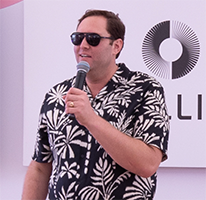Blockbuster, Inc. is awarding coupons to millions of consumers as part of a class-action settlement over the company’s extended-viewing fees policy.

About 38 million people were part of the class-action settlement, company spokesman Randy Hargrove said. Blockbuster has not disclosed the full settlement amount.
Under the terms of the settlement, consumers who paid extended viewing fees to Blockbuster between Jan. 1, 1992 and April 1, 2001 will receive awards.

Customers who spent $30 or less on extended viewing fees will get two coupons for a free “Blockbuster Favorites” rental and five $1 coupons off any rental or non-food purchase. Renters who spent between $30 and $60 will receive two coupons for free “Blockbuster Favorites,” five $1 coupons off a rental or non-food item and one rent-one, get-one-free coupon. Consumers who spent more than $60 on extended viewing fees will receive three coupons for a free non-new release movie rental, six $1 off coupons toward a rental or non-food item and a rent-one, get-one-free coupon. All coupons are transferable.
Blockbuster began issuing coupons on Aug. 1. Eligible customers receive their coupons upon checkout. The distribution period runs through Nov. 28, when the coupons expire. The coupons range in value from $13 to $26.
“We’re pleased to have reached a final resolution in this case,” Hargrove said. “It’s allowing the company to continue focusing on its business and…and at the same time giving our customers something of value.”
Between February 1999 and April 2001, two dozen lawsuits were filed against Blockbuster, challenging the company’s extended viewing fees policy. At that time, Blockbuster offered two-day (new releases) and five-day rentals (non-new releases) on DVDS and videos.
Before February 2000, consumers who kept a movie out beyond the due date were charged a per day rate based on the movie’s rental price, Hargrove said. In February 2000, Blockbuster changed its extended viewing fees policy to a rental basis period, charging customers the equivalent price of the rental for movies kept after the due date. For example, if customers rented a new release film for $3.99 and kept the movie two days beyond the due date, they would pay a $3.99 late fee, Hargrove said.
Also in February 2000, the company increased its viewing period by 12 hours, making rentals due by noon the following day.
Dallas-based Blockbuster agreed to settle the lawsuits in 2001. A Beaumont, TX judge approved the settlement agreement in January 2002. Attorneys for plaintiffs who were not part of the lawsuit appealed the decision. A final decision was reached this year, Hargrove said.
“Blockbuster had won other cases regarding its extended viewing cases,” Hargrove said. “We believe we would have prevailed in those cases we settled. However, defending multiple lawsuits in multiple jurisdictions requires both time and money. So, in the best interests if our company and our customers, we settled all of our cases.”
The settlement is independent of Blockbuster’s No Late Fees policy, which the company implemented on Jan. 1. Under that policy, customers can keep movie or game rentals beyond the due date for an additional week free of charge. If customers choose to keep the rental past the seventh day, Blockbuster will charge users on the eighth day for the movie or game, less the rental fee. If consumers return the movie or game within 30 days, Blockbuster will reverse the charge, minus a stocking fee.
 Network
Network

